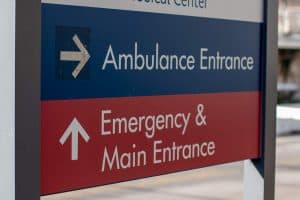Important Information on New Jersey Malpractice Laws You Need to Know
If a doctor, hospital, or another medical professional provided treatment that resulted in injury, you could be able to recover lost compensation for your losses by filing a medical malpractice claim. However, the medical malpractice laws in New Jersey are fairly complex and can be hard to understand for those unfamiliar with the law. The requirements for holding a medical provider liable for malpractice can seem overwhelming, and a medical malpractice lawyer in New Jersey can offer guidance, support, and legal counsel as you pursue a medical malpractice claim to hold a health care provider accountable for negligence or medical errors.
The Statute of Limitations for New Jersey Medical Malpractice Cases
You should know that you don’t have an unlimited period of time to file your medical malpractice claim. There is a statute of limitations in place for medical malpractice claims in New Jersey establishing that you have to file your claim two years from the date of your injury — or the date you should have, within reason, known of your injuries. However, there are some important exceptions to the rule, such as in cases involving minors or those who are mentally incompetent. It’s always in your interest to consult with a qualified lawyer as soon as you can to protect your legal right to pursue a claim.
The Health Care Provider Must Have Breached the Care Standard
In order for medical malpractice to take place, you have to first show that the health care professional failed to meet or exceed the accepted medical standard of care. The medical standard of care is measured against what a reasonably trained doctor in the same field as your health care provider would have been expected to do given the same or similar circumstances. You have to retain medical experts can identify what the medical standard of care should have been regarding the unique qualities of your case.
All Instances of Errors or Negligence May Not Be Medical Malpractice
In order for negligence to rise to the level of medical malpractice, the negligent actions or medical errors committed by the medical professional has to have resulted in injury or other damages, so in order to win a medical malpractice case, you have to offer evidence that your injuries would have taken place had it not been for the wrongdoing of the health care professional.
When filing a medical malpractice lawsuit, you have to first submit an Affidavit of Merit signed by a medical expert who claims that there is a reasonable chance that your injuries were the result of negligent medical care or medical error. The medical expert you choose has to meet certain legal requirements in order to qualify as a medical expert.
There Is a Cap for Certain damages in a Medical Malpractice Case
Financial losses, such as medical costs and lost wages, are not capped in a medical malpractice claim in New Jersey. You are able to claim out-of-pocket expenses related to your injuries, as long as you can provide evidence of those expenses. There is also no limit placed on non-economic losses in New Jersey medical malpractice cases. Essentially, a jury can award any amount for your pain and suffering damages based on the evidence provided.
However, if you are able to recover punitive damages, there are limited under state law on the amount you can potentially recover for this type of damage. Only cases involving gross negligence or intentional acts are eligible for punitive damages.
Contact a New Jersey Medical Malpractice Lawyer
Laws governing medical malpractice can be hard to understand, and these types of claims often involve complex medical questions and legal theories, You need the aid of a lawyer with experience with these legal requirements and who has the resources to retain medical experts to collaborate on your case. You should consult with a New Jersey medical malpractice attorney today at Brady Reilly & Cardoso, LLC today. When you seek the counsel of an experienced New Jersey medical malpractice lawyer, you can significantly improve your chances of recovering compensation for injuries and damages resulting from the actions of a medical provider.
New Jersey Medical Malpractice Injuries
 In a perfect world, medical malpractice would never happen, but that is far from reality. Statistics show that medical malpractice is attributable to nearly 120,000 deaths each year. While this enough may be shocking for most, it should be even more surprising that less than 3 percent of malpractice victims ever pursue compensation for their injuries through a medical malpractice claim. All victims of medical malpractice deserve to recover the compensation they deserve to cover losses and damages associated with medical malpractice. The actions or negligence of a trusted health care provider can result in injuries and completely devastate a patient.
In a perfect world, medical malpractice would never happen, but that is far from reality. Statistics show that medical malpractice is attributable to nearly 120,000 deaths each year. While this enough may be shocking for most, it should be even more surprising that less than 3 percent of malpractice victims ever pursue compensation for their injuries through a medical malpractice claim. All victims of medical malpractice deserve to recover the compensation they deserve to cover losses and damages associated with medical malpractice. The actions or negligence of a trusted health care provider can result in injuries and completely devastate a patient.
When a doctor or hospital makes a mistake during any stage of the treatment process, the results can be catastrophic for the patient. The basis of medical malpractice claims is holding doctors, hospitals, and health care professionals accountable for their mistakes. If you were misdiagnosed or a physician failed to diagnose your condition, it can potentially be a fatal error. Consulting with legal council will provide you with the information you need to decide your next steps in order to receive proper compensation for your pain and suffering.